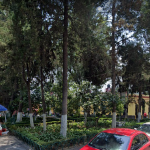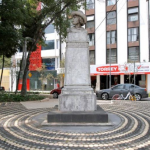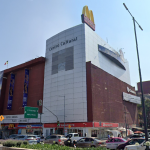 55 5207 7700
55 5207 7700

Nearest at 0.03 kms.

Nearest at 0.03 kms.

Nearest at 0.19 kms.

Two historic public spaces in Mexico City's Roma Norte . . .

A major center for Musical Theater and a monument to a resiliante spirit...

A favorite little neighborhood for its long history as an area apart.

A neighborhood market on the cusp of several neighborhoods.

The rock club that set Roma on edge, Alicia's still going strong a quarter-century later